| Weight | 1 lbs |
|---|---|
| Dimensions | 9 × 5 × 2 in |
| host | mouse |
| isotype | IgG |
| clonality | monoclonal |
| concentration | concentrate, predilute |
| applications | IHC |
| reactivity | human |
| available size | 0.1 mL, 0.5 mL, 1 mL concentrated, 7 mL prediluted |
rabbit anti-CD31 monoclonal antibody (ZR274) 6085
Price range: $160.00 through $528.00
Antibody summary
- Rabbit monoclonal to CD31
- Suitable for: Immunohistochemistry (formalin-fixed, paraffin-embedded tissues)
- Reacts with: Human
- Isotype:IgG
- Control: Placenta
- Visualization: Cell membrane
- 0.1, 0.5, 1.0 mL concentrated, 7 mL prediluted
rabbit anti-CD31 monoclonal antibody ZR274 6085
| target relevance |
|---|
| Protein names Platelet endothelial cell adhesion molecule (PECAM-1) (EndoCAM) (GPIIA') (PECA1) (CD antigen CD31) |
| Gene names PECAM1,PECAM1 |
| Mass 82522Da |
| Function FUNCTION: Cell adhesion molecule which is required for leukocyte transendothelial migration (TEM) under most inflammatory conditions (PubMed:17580308, PubMed:19342684). Tyr-690 plays a critical role in TEM and is required for efficient trafficking of PECAM1 to and from the lateral border recycling compartment (LBRC) and is also essential for the LBRC membrane to be targeted around migrating leukocytes (PubMed:19342684). Trans-homophilic interaction may play a role in endothelial cell-cell adhesion via cell junctions (PubMed:27958302). Heterophilic interaction with CD177 plays a role in transendothelial migration of neutrophils (PubMed:17580308). Homophilic ligation of PECAM1 prevents macrophage-mediated phagocytosis of neighboring viable leukocytes by transmitting a detachment signal (PubMed:12110892). Promotes macrophage-mediated phagocytosis of apoptotic leukocytes by tethering them to the phagocytic cells; PECAM1-mediated detachment signal appears to be disabled in apoptotic leukocytes (PubMed:12110892). Modulates bradykinin receptor BDKRB2 activation (PubMed:18672896). Regulates bradykinin- and hyperosmotic shock-induced ERK1/2 activation in endothelial cells (PubMed:18672896). Induces susceptibility to atherosclerosis (By similarity). {ECO:0000250|UniProtKB:Q08481, ECO:0000269|PubMed:12110892, ECO:0000269|PubMed:17580308, ECO:0000269|PubMed:18672896, ECO:0000269|PubMed:19342684, ECO:0000269|PubMed:27958302}.; FUNCTION: [Isoform Delta15]: Does not protect against apoptosis. {ECO:0000269|PubMed:18388311}. |
| Subellular location SUBCELLULAR LOCATION: Cell membrane {ECO:0000269|PubMed:17580308}; Single-pass type I membrane protein {ECO:0000305}. Note=Cell surface expression on neutrophils is down-regulated upon fMLP or CXCL8/IL8-mediated stimulation. {ECO:0000269|PubMed:17580308}.; SUBCELLULAR LOCATION: [Isoform Long]: Cell membrane {ECO:0000269|PubMed:18388311, ECO:0000269|PubMed:19342684}; Single-pass type I membrane protein {ECO:0000305|PubMed:18388311}. Membrane raft {ECO:0000269|PubMed:17139370, ECO:0000269|PubMed:22496122}. Cell junction {ECO:0000269|PubMed:18388311}. Note=Localizes to the lateral border recycling compartment (LBRC) and recycles from the LBRC to the junction in resting endothelial cells. {ECO:0000269|PubMed:19342684}.; SUBCELLULAR LOCATION: [Isoform Delta15]: Cell junction {ECO:0000269|PubMed:18388311}. Note=Localizes to the lateral border recycling compartment (LBRC) and recycles from the LBRC to the junction in resting endothelial cells. |
| Tissues TISSUE SPECIFICITY: Expressed on platelets and leukocytes and is primarily concentrated at the borders between endothelial cells (PubMed:18388311, PubMed:21464369). Expressed in human umbilical vein endothelial cells (HUVECs) (at protein level) (PubMed:17580308, PubMed:19342684). Expressed on neutrophils (at protein level) (PubMed:17580308). Isoform Long predominates in all tissues examined (PubMed:12433657). Isoform Delta12 is detected only in trachea (PubMed:12433657). Isoform Delta14-15 is only detected in lung (PubMed:12433657). Isoform Delta14 is detected in all tissues examined with the strongest expression in heart (PubMed:12433657). Isoform Delta15 is expressed in brain, testis, ovary, cell surface of platelets, human umbilical vein endothelial cells (HUVECs), Jurkat T-cell leukemia, human erythroleukemia (HEL) and U-937 histiocytic lymphoma cell lines (at protein level) (PubMed:12433657, PubMed:18388311). {ECO:0000269|PubMed:12433657, ECO:0000269|PubMed:17580308, ECO:0000269|PubMed:18388311, ECO:0000269|PubMed:19342684, ECO:0000269|PubMed:21464369}. |
| Structure SUBUNIT: Trans-homodimer (via Ig-like C2-type 1 and Ig-like C2-type 2 domains); trans-homodimerization is required for cell-cell interaction (PubMed:26702061, PubMed:27958302). Forms a complex with BDKRB2 and GNAQ (PubMed:18672896). Interacts with BDKRB2 and GNAQ (PubMed:18672896). Interacts with PTPN11; Tyr-713 is critical for PTPN11 recruitment (PubMed:18388311, PubMed:19342684). Interacts with FER (By similarity). Interacts (via Ig-like C2-type domain 6) with CD177; the interaction is Ca(2+)-dependent; the interaction is direct (PubMed:17580308). {ECO:0000250|UniProtKB:P51866, ECO:0000269|PubMed:17580308, ECO:0000269|PubMed:18388311, ECO:0000269|PubMed:18672896, ECO:0000269|PubMed:19342684, ECO:0000269|PubMed:26702061, ECO:0000269|PubMed:27958302}. |
| Post-translational modification PTM: Phosphorylated on Ser and Tyr residues after cellular activation by src kinases (PubMed:18710921, PubMed:19342684, PubMed:21464369, PubMed:9298995). Upon activation, phosphorylated on Ser-729 which probably initiates the dissociation of the membrane-interaction segment (residues 709-729) from the cell membrane allowing the sequential phosphorylation of Tyr-713 and Tyr-690 (PubMed:21464369). Constitutively phosphorylated on Ser-734 in resting platelets (PubMed:21464369). Phosphorylated on tyrosine residues by FER and FES in response to FCER1 activation (By similarity). In endothelial cells Fyn mediates mechanical-force (stretch or pull) induced tyrosine phosphorylation (PubMed:18710921). {ECO:0000250|UniProtKB:Q08481, ECO:0000269|PubMed:18710921, ECO:0000269|PubMed:19342684, ECO:0000269|PubMed:21464369, ECO:0000269|PubMed:9298995}.; PTM: Palmitoylation by ZDHHC21 is necessary for cell surface expression in endothelial cells and enrichment in membrane rafts. {ECO:0000269|PubMed:17139370, ECO:0000269|PubMed:22496122}. |
| Domain DOMAIN: The Ig-like C2-type domains 2 and 3 contribute to formation of the complex with BDKRB2 and in regulation of its activity. |
| Target Relevance information above includes information from UniProt accession: P16284 |
| The UniProt Consortium |
Data
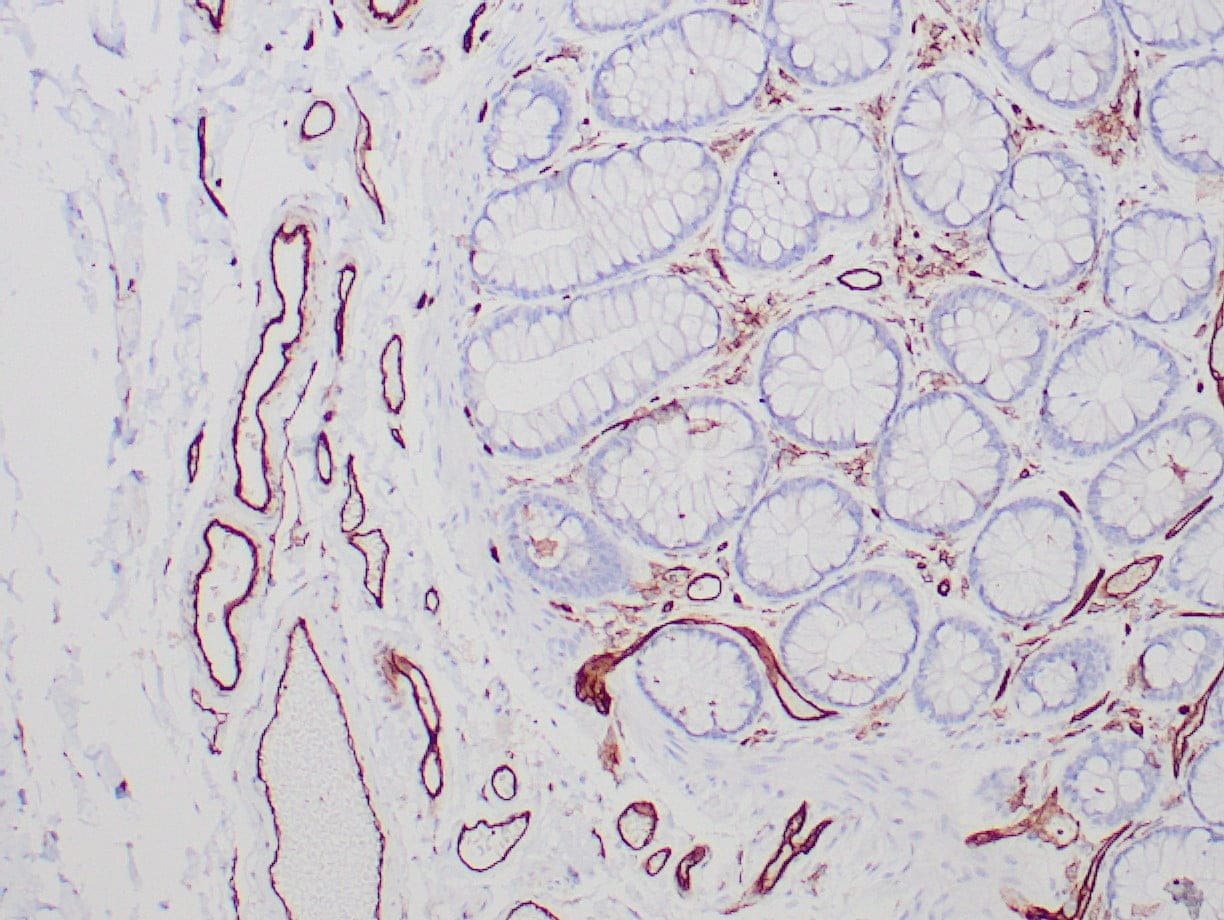 |
| Formalin-fixed, paraffin-embedded human colon stained with anti-CD31 antibody using peroxidase-conjugate and DAB chromogen. Note cell surface and cytoplasmic staining of vascular endothelial cells . |
Publications
| pmid | title | authors | citation |
|---|---|---|---|
| We haven't added any publications to our database yet. | |||
Protocols
| relevant to this product |
|---|
| IHC |
Documents
| # | SDS | Certificate | |
|---|---|---|---|
| Please enter your product and batch number here to retrieve product datasheet, SDS, and QC information. | |||
Only logged in customers who have purchased this product may leave a review.

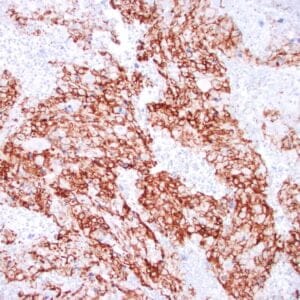

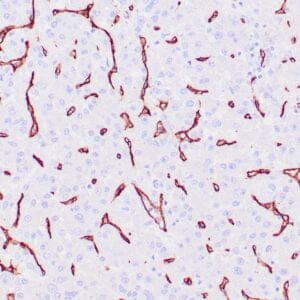
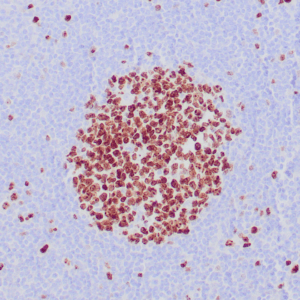
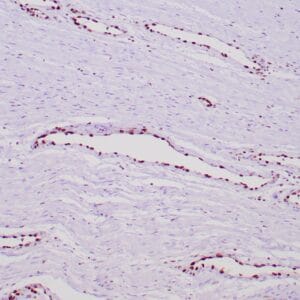
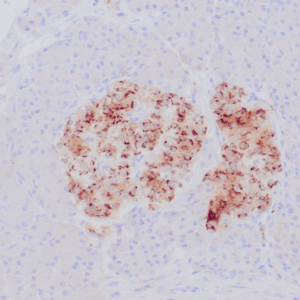
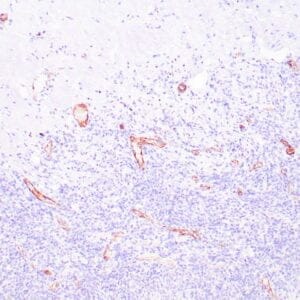
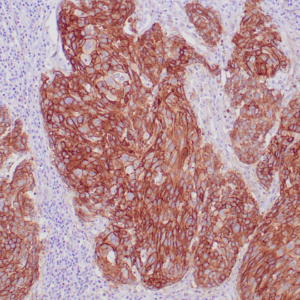
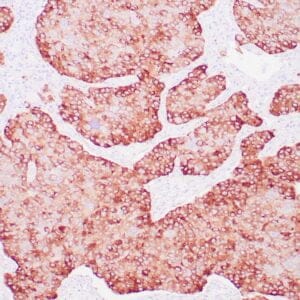
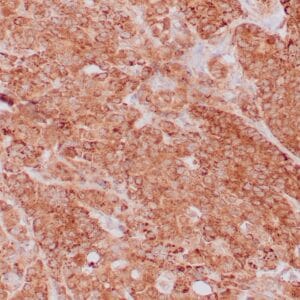
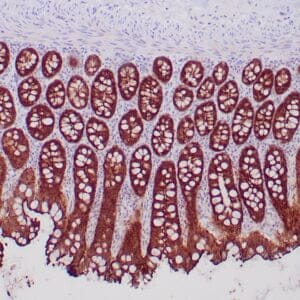
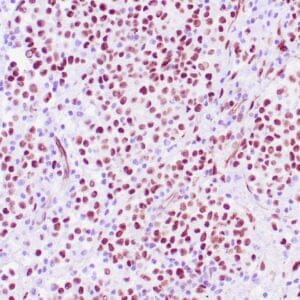
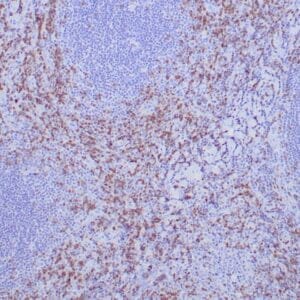
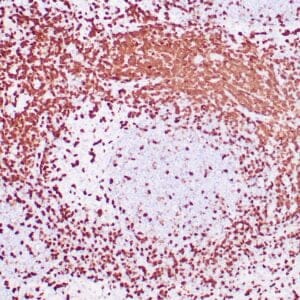
Reviews
There are no reviews yet.